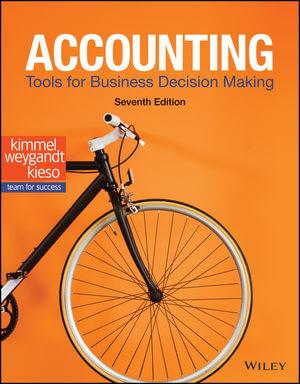
Suppose that you manage Whitewater Sporting Goods Store No. 18, which carries a complete line of outdoor recreation gear. You are to prepare the master budget for your store for July, August, September and October the main selling season. The division manager and the assistance controller (head of the accounting department) of the company will arrive from headquarters next week to review the budget with you. The balance sheet of your store as at 30th June, 2019, the beginning of the budget period, is shown in the following. Whitewater Sporting Goods Store No. 18 Balance Sheet as at 30 June, 2019 Assets $ Liabilities and Owner's equity Current assets: Current liabilities: Cash $ 15, 000 Accounts payable $16, 800 Accounts receivable 16, 000 Salary and commissions 4, 250 Inventory 48, 000 payable Prepaid Insurance 1,800 Plat assets: $80, 800 $21, 050 Equipment and fixtures 32, 000 Accumulated depreciation (12, 800) 78. 950 Owner's equity $100, 000 $100, 000 Total assets Total liabilities and owner's equity Cash collections follow sales because the company sells on account. When extra cash is needed, the company borrows on six-month instalment notes payable. Sales in June 30 were $40, 000. Monthly sales are projected by sales personnel: July 69 50, 000 August 80, 000 September 60. 000 October 50, 000 November 28, 000 Sales are 60 percent cash and 40 percent on credit. All credit sales are collected in the month following the sale. The $16, 000 of accounts receivable at June 30 arose from credit sales made in June (40 percent of $40 000). Uncollectible accounts are insignificant. Whitewater maintains inventory equal to $20 000 plus 80 percent of the budgeted cost of goods sold for the following month. (All these percentages are drawn from the business's past experience). Cost of goods sold averages 70 percent of sales.1Whitewater pays for inventory as follows: it] percent during the month of purchase it] percent during the next month. Accounts payable consists of inventory purchases only. Monthly payroll has two parts: a salary of $2, Silt] plus commissions equal to 15 percent of sales. The company pays half of this amount during the month and halfearly in the following month. Therefore, at the end of each month Whitewater reports salary and commissions payable equal to halfthe month's payroll. l[hither monthly expenses are: Rent expense $ 2 Illltl, paid as incurred Depreciation expense, including truck 5110 Insurance expense Elli} expiration of prepaid amount Miscellaneous expense 5% of sales, paid as incurred. A. used delivery truclr will be purchased in July for $3, Dill] cash. Whitewater requires each store to maintain a minimum cash balance of $10, [tilt] at the end of each month. The store can borrow money on notes payable of $10, bill] each at an annual rate I of 12 percent Management borrows no more than the amount needed to maintain the $10, minimum balance. Notes payable require six. equal monthly payments consisting of principal plus monthly interest on the entire unpaid principal. Borrowing and all principal and interest payment occur at the end of the month. Income taxes are the responsibility of corporate headquarters, so you can ignore tax for budgeting purposes. Required: You have studied the company guideline on how to prepare a budget. The directions instruct you to prepare the following detailed schedules: A. Sales budget B Purchases, cost of goods sold, and inventory budget C Operating expenses budget D Budgeted cash collections hem customers E Budgeted cash disbmsement for purchases F Budgeted cash disbursement for operating expenses After preparing these schedules, you are asked to prepare a summary statement of budgeted cash receipts and disbursements (a cash budget]









